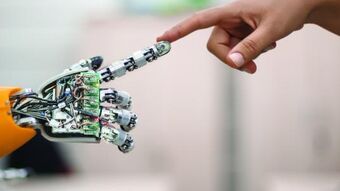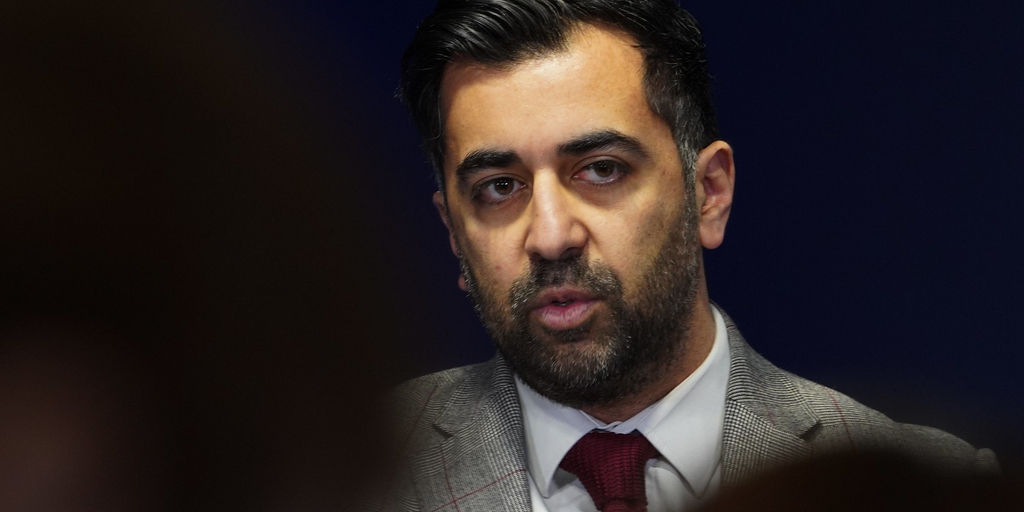How to keep the faith in the digital revolution?

This is the first in a series of blogs by Matt James, seeking to answer the vital question about how we keep the faith in the digital revolution.
Can you remember your first mobile phone? I can remember mine. It was a blue Siemens C25e and the fact that you could choose from a range of ring tones was the main feature that put it head and shoulders above the rest … or so I was told at the time. I could ring or text friends and family confident in the knowledge that when they rang me I could tell who was calling simply from the ringtone. But I couldn’t download email. Neither could I tweet, seek directions from Google maps, book my rail e-tickets or ask Siri. Strange as it may seem compared to today’s standards it really was just a phone!
How digital technology has evolved over the decades is amazing to witness and be a part of. Two key factors have helped drive this revolution. First, the chip; not the type you can eat but the small, silicon variety. As these chips have become smaller and cheaper to produce, so have the computers which they help to power. Second, the advent of the internet has ushered us into a world of digital interconnectedness. Whilst the internet was the brainchild of Vint Cerf and Robert Kahn, it was Tim Berners-Lee who took their invention and increased its usefulness by developing the worldwide web. Just think about the following facts: It took radio, 38 years to attract its first 50 million listeners. It took TV 13 years to attract its first 50 million viewers. But it took the ubiquitous worldwide web just 4 years to attract its first 50 million users.
Consumers now spend on average more than five hours a day on their smartphones, and a recent AdWeek survey found 88% growth year over year in time spent watching videos on a smartphone. It sounds incredible that worldwide, more people own a mobile than a toothbrush and that the number of mobile devices that exist in the world already exceeds the world’s population.
With smaller and more powerful computers and the connectedness of the web, the digital revolution has seemingly turned our world upside down ... but to quote the well known phrase You ain’t seen nothing yet! There is every reason to believe that the technology is going to get faster and faster which only helps to emphasise that the challenges we face in making the best use of it, are only going to intensify.
We could consider these challenges as coalescing around two main areas: relationships and responsibilities.
Relationships
We are creatures who have relationships – human relationships, personal relationships – just as God has a relationship with us. Advances in digital technology are helping us to stay connected and communicate in more convenient and easier ways. At the same time, as we adapt and incorporate these new technologies into our lives they threaten to strip away important aspects of how we relate and connect on a personal level. US Research conducted in 2014 by Pew Research Center poll indicated that one in four mobile owners in a relationship or marriage found their partner too distracted by their cell phone. Nearly 1 in 10 had argued with a partner about excessive time spent on the devices.
Deloitte conducted a survey in 2017 of 4,150 British adults about their mobile habits. 38% said they thought they were using their smartphone too much. Among 16- to 24-year-olds, that rose to more than half. Habits such as checking apps in the hour before they go to sleep (79% of us do this, according to the study) or within 15 minutes of waking up (55%) may be taking their toll on the health of relationships.
A recent study from the University of Pittsburgh School of Medicine examined depression rates in younger adults, finding significantly increased odds of depression among those spending the most time engaged in social media. The study also notes that further multiples studies indicate a link between social media use with declines in mood, sense of well-being, and life satisfaction. In turn, the phenomena of FOMO (Fear Of Missing Out) could be shaped by these declines which are have been shown to be often exacerbated by social media use, resulting in poor mental health.
There is certainly a convenience to digital communications but the impact of time spent in front of a screen has the potential to lead to adverse consequences for what it means to be human and our lived day to day lived experiences.
Responsibilities
Greater access to technology has reduced the digital divide, but the transformation in digital platforms from Web 1.0 (passive receiver of information) to Web 2.0 (user generated content, interoperability, collaboration) has opened up what has been called the digital literacy divide. A person’s digital literacy skills will help to determine their capacity to experience that greater level of autonomy, personal insight and understanding of many different life issues. This can range from the very personal (relationships and health) to the very public of sharing views and opinions on the latest top issue. As many of us will realise, this poses exciting possibilities for the future as well as matters of great concern. The mobile device and its growing capability power represent the democratisation of so many aspects of life in a way we have yet to understand or express.
As Christians, what ever else being made 'in God’s image' may mean, it enables us to serve as His stewards in managing the earth, which involves the development of science and technology. There is a need for us to demonstrate our responsibility in order to see technology harnessed for the benefit of all of humanity.
Where do we start?
Looking at the life of Jesus we don’t read about him texting his disciples to arrange a discipleship meeting or taking a photo of his latest miracle and putting it on Instagram. Just what would Jesus do in a digital world? Flicking through a concordance there are no references to mobile phone, microchip, GPS or artificial intelligence. So where do we start?
First, as our focus is increasingly drawn to consider the interaction between what is human and artificial, we begin to cut straight to a core question which underpins the Christian faith: what does it mean to be human? We need to remember that we are not only Homo sapiens or ‘wise man’ but also Homo faber - ‘working man’ and later manufacturing or creative man. The whole idea of technology, from the most primitive tool to the latest silicon chip, is the story of us making things that enable us to do more than we could do without them. As theologian Prof Brent Waters has commented “technology is the way we live and move and have our being in today’s age”. It is through technology that we increasingly express who we are and what we aspire to become.
But in fulfilling our creation mandate to take dominion and work the land (Genesis 1:26-31) we need to be wise that we do not end up becoming slaves to the very technology that is supposed to be serving us! It was this recognition that drove C.S. Lewis, in his prophetic essay of 1943, The Abolition of Man, to argue that while technology is said to extend the power of the human race, “what we call Man’s power over Nature turns out to be a power exercised by some men over other men with Nature as its instrument.”
You only have to consider the statistics offered above and reflect on the public debate concerning how social media companies harvest personal data to drive and provide their ‘free’ services, to realise how these power dynamics can play out today.
Reaching a tipping point?
If the digital revolution has only just got started, what is to our response and can we really expect to make a difference?
Author and public speaker, Malcolm Gladwell helped to popularise the term ‘tipping point’ as that seemingly magical moment when ideas and trends reach a certain point and spread like wildfire. This has a certain resonance with what we read in Matthew 13:33 where Jesus talks about the Kingdom of Heaven being like yeast in the making of bread. Only a little yeast may be used but it spreads and permeates every part of the dough.
What lessons can we learn from this as the digital revolution develops? How can we achieve a tipping point that goes beyond just a deluge of new tech to one which ushers in a revolution that helps humanity to flourish through the use of digital technology? As Christians how can we play our part in this?
In his book Gladwell identifies three key factors that help to achieve a tipping point:
1. The law of the few
2. The stickiness factor
3. The power of context
In subsequent blog posts, I’ll be looking to explore how these three factors might help to shape a Christian response to living in a digital age.
About the author
Matt James is the Director of the BioCentre and is also a consultant for CARE
The Robots are Coming...
If you would like to read more about some of the questions raised in the piece above, CARE commissioned Nigel Cameron to write a book called The Robots are Coming: Us, Them and God which explores key questions about the digital revolution. You can buy a copy from our shop.




Share story
How to keep the faith in the digital revolution?